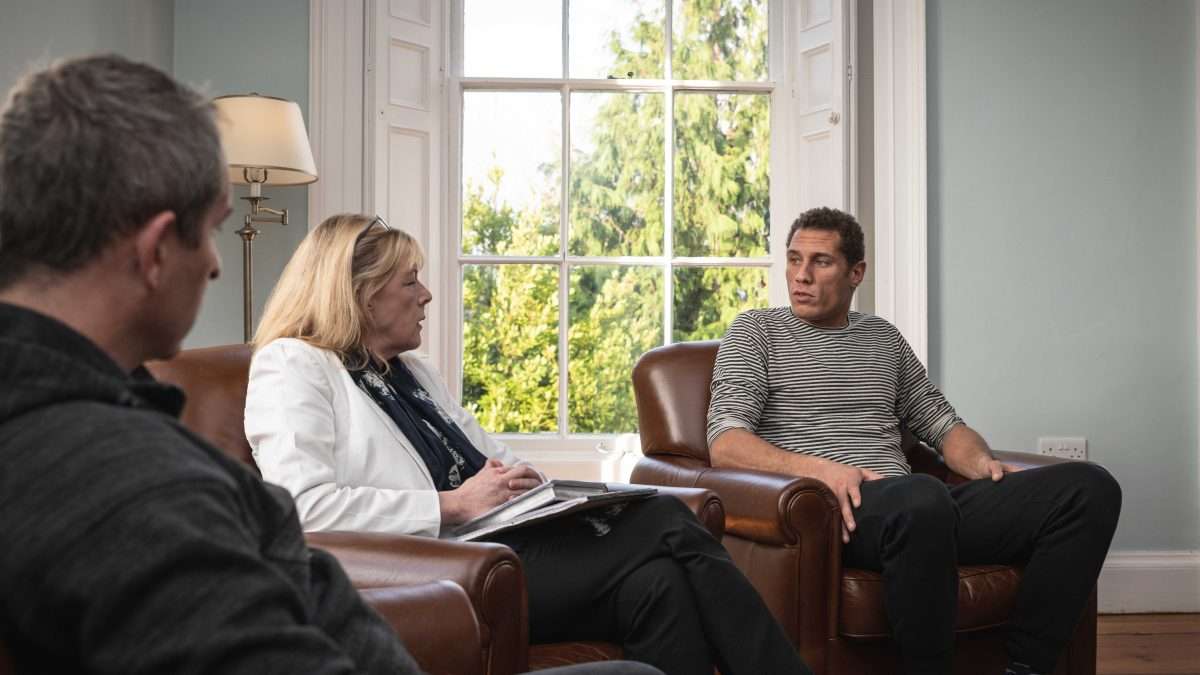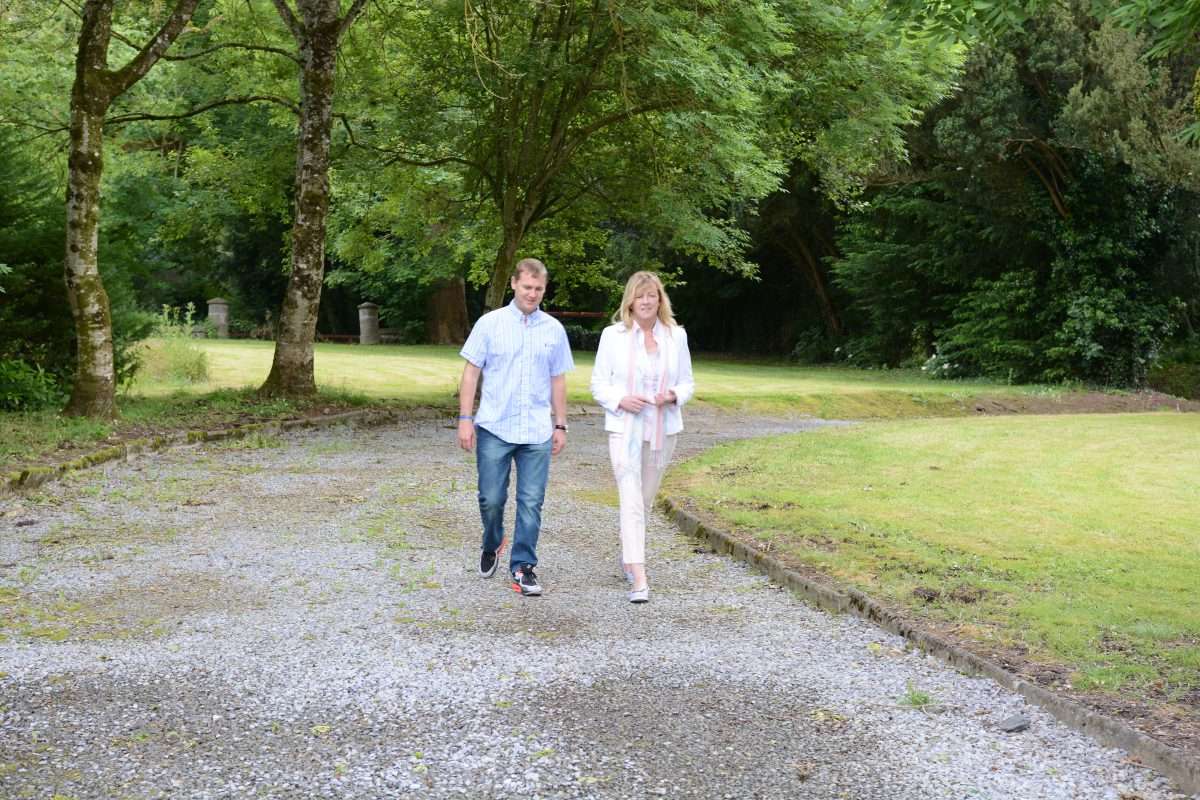
Are You Concerned About Your Gambling?
Table of Contents
Gambling addiction, also called compulsive gambling or gambling disorder, is a recognised behavioural addiction that can significantly impact your mental health, relationships, and family finances. Even if you don’t gamble daily, patterns of addictive behaviour and repeated unsuccessful efforts to stop can indicate a more serious problem. According to data on Irish gambling habits, nearly 1 in 30 adults in Ireland may have a gambling problem, with men aged 30-39 at the highest risk.
This page explains how gambling affects people in Ireland, outlines the risk factors, and explores treatment options. With timely support, recovery is possible.
What is Gambling Addiction?
Gambling addiction is defined by the American Psychiatric Association as a behavioural addiction involving a pattern of gambling that causes significant harm. The Diagnostic and Statistical Manual of Mental Disorders (DSM-5) lists gambling disorder under substance-related and addictive disorders. This means gambling shares traits with drug or alcohol addiction and substance use disorder, including cravings and a feeling of loss of control.1,2
People with problem gambling behaviour may experience a surge in dopamine whilst gambling. This is similar to what occurs with drug use. As the body becomes used to the feeling caused by gambling behaviours, this reinforces the addiction and can lead to negative consequences such as losing money gambling, bankruptcy, legal problems, or relationship breakdowns.
The Effect of Gambling Addiction in Ireland
According to Irish gambling studies, nearly 1 in 30 adults in Ireland may have a gambling problem, with men aged 30-39 being at the highest risk.
Online gambling and sports betting are common entry points. Slot machines, gaming disorder, and the convenience of gambling from mobile devices all contribute to the rising rates of addiction. This has a negative impact on those who gamble, their loved ones, and the communities around them.3

Download our Brochure
Risk Factors for Gambling Addiction
Gambling addiction rarely stems from one single cause. For many people, it develops as a result of several risk factors all happening at once. Compulsive gamblers may develop a gambling disorder due to a mix of biological, psychological, and environmental factors. Some key risk factors include:
Lack of awareness around the risks of using trading apps or cryptocurrency gambling: In some cases, easy access to money or digital platforms or trading apps without any safeguards or awareness of the risks can speed up or inspire the development of harmful gambling behaviours.
Family history of addictive disorders: Your genetics might play a part in your gambling habits, or you may have grown up in an environment where gambling was normal.
Co-existing mental disorders like anxiety or depression: Mental health conditions such as depression or anxiety can make gambling seem like a form of escape.
History of alcohol addiction or substance misuse: Sometimes, other addictions may go hand-in-hand with problem gambling, making it worse over time.
Social pressure or early start gambling age: Social influences, like peer pressure or gambling from a young age, can also play a role. Gambling can sometimes be seen as a fun pastime in many families and even encouraged by parents.
Recognising the Signs of Problem Gambling
Many people don’t realise they have a gambling problem until it starts to affect other parts of their lives. Behavioural signs often include spending increasing amounts of time or money gambling, putting off essential payments to cover gambling losses, or lying to loved ones about your habits. You might also find yourself planning your day around gambling, neglecting responsibilities, or trying to recover lost money by gambling more; a behaviour known as “chasing losses.”
The emotional toll of a gambling disorder can be equally damaging. Symptoms may include mood swings, irritability, or even restlessness when trying to reduce or stop gambling. In severe cases, people can develop symptoms linked to impulse control disorders or even contemplate suicide, especially when gambling co-occurs with conditions like bipolar disorder. Recognising these signs early is a crucial step toward recovery.
Behavioural Signs 2,4,5:
- More gambling time or money needed to feel excitement
- Postpone gambling debts or pay bills late
- Lying to family members or hiding credit card statements
- Planning life around gambling or neglecting family life
- Chasing losses after losing money gambling
- Feeling guilt, anxiety, or depression from gambling
Emotional & Physical Symptoms 2,4,5:
- Increased mood swings or restlessness when trying to stop gambling
- Impulse control disorder symptoms, like irritability
- Suicide attempts in severe cases of pathological gambling or bipolar disorder
Are you looking for gambling addiciton treatment?
Find out more about gambling rehab by contacting a member of the team today.
Diagnosing Gambling Addiction
Gambling disorder is a medically recognised condition with specific criteria for diagnosis. According to the DSM-5, you may be diagnosed with gambling addiction if you meet at least four out of nine criteria within 12 months. These include needing to gamble with increasing amounts of money, feeling irritable when trying to stop, repeated unsuccessful attempts to cut back, and gambling to escape negative emotions.1
Other indicators include lying to others, risking relationships or career opportunities, and relying on others for financial help due to gambling debts. These patterns often evolve gradually, making it essential to seek a proper assessment if you recognise these behaviours in yourself or a loved one.
The Nine Signs of a Gambling Disorder:
- Being preoccupied with gambling or consistently gambling.
- Gambling with increasing amounts of money.
- Irritability or restlessness when trying to stop gambling.
- Repeated unsuccessful efforts to control gambling habits.
- Gambling to escape emotional or psychological stress.
- Losing money gambling and chasing losses.
- Lying to others about the extent of gambling behaviour.
- Risking relationships, work, or personal obligations due to gambling.
- Relying on others for gambling money.



Treatment Options for Gambling Addiction in Ireland
Evidence-based treatments are available in Ireland for gambling addiction, including at residential centres like Smarmore Castle. One therapeutic approach is cognitive behavioural therapy (CBT), which aims to help patients understand and change the thoughts and behaviours that drive gambling.
Motivational interviewing can also support your readiness to change. Residential treatment may be beneficial for those with severe or long-standing addiction, offering a structured, immersive environment away from home and the daily things that trigger the need to gamble.
In addition to professional treatment, peer support can be a benefit to those ready to share their experiences.
-
Professional Treatment:
- One-to-one therapy or group therapy options
- Access to residential treatment facilities like Smarmore Castle
- Working with a qualified mental health professional
Therapy can help you [5]:
- Gain control over your gambling.
- Handle stressful situations better.
- Prioritise other aspects in your life.
- Help you control your finances with more control and insight.
- Provide more stability and room to repair relationships.
- Maintain recovery and avoid triggers.
- Support any co-occurring mental health issues.
-
Support Groups and Aftercare:
Aftercare services and structured support groups can also play a key role in maintaining recovery and helping to prevent relapse.
Aftercare solutions are usually put in place before you leave residential treatment, so you have a plan to help you maintain your recovery long-term.
Structured support groups that are local to you will also be integral during this time in helping you maintain your recovery, as they provide structured support that continues on from what you have learnt during treatment and that may help prevent relapse.
-
The Role of Family in Gambling Recovery
Family members are often directly affected by a loved one’s gambling. Open communication, counselling, and education on impulse control disorder can help support recovery and rebuild family life.
Family involvement in addiction treatment can help reduce relapse rates and rebuild trust. With guidance for everybody involved, you can find the support you need whilst learning coping strategies that will give you the best chance at recovery.
When to Seek Help for Gambling Addiction
If you find it hard to stop gambling despite wanting to, or if your gambling has led to lying, financial strain, or emotional distress, it may be time to seek help. Recognising the problem is the first step. Problem gambling can affect anyone, regardless of age or background, and seeking support is a sign of strength. You should consider seeking help if you:
- Feel unable to stop gambling despite trying
- Lie about your gambling patterns
- Experience mental health issues related to gambling
- Are you struggling with managing money or hiding debts
There is no shame in reaching out. Gambling disorder is a treatable addictive disorder. At Smarmore Castle, specialised care is available to guide you through recovery and help you rebuild your life.
What Next?
If you are looking for help to begin your recovery, Smarmore Castle provides confidential gambling addiction treatment. Our multidisciplinary team works closely with patients and family members to provide structured, evidence-based care.
Whether you’re struggling with gambling behaviour, alcohol addiction, drug addiction or other behavioural addictions (such as gaming), we offer holistic support to help you regain control of your life. Contact a member of our team today to find out more information and access private residential treatment on +353 41 986 5080.
Additional Resources for Gambling Disorders in Ireland
If you are looking for free local resources near you to support your recovery at home, explore your nearest Gamblers Anonymous Ireland meeting groups or find out more about HSE Gambling Services. If you need to speak to someone urgently, contact The Samaritans.
Find Out More About Gambling Addiction Treatment.
Contact us confidentially to find out more about the gambling rehab treatment options available.
Frequently Asked Questions
-
How does gambling addiction start?
Gambling addiction often starts with casual or social gambling, such as sports betting or slot machines. Many gamblers report childhood memories of being given a lottery ticket for the first time by a well-meaning relative, or being taken to the races by family for example. For some, gambling may begin as a way to escape stress or negative emotions, or it may simply be something that occurs during social situations.
Over time, gambling can become compulsive, especially when the individual experiences the short-lived rush of dopamine that gambling provides. Environmental factors, such as easy access to online gambling, can make the problem worse and lead to the development of a gambling disorder.
-
What triggers gambling addiction?
Various environmental and psychological factors can trigger gambling addiction. These may include stress, anxiety, depression, financial difficulties, or a history of substance misuse. Online gambling platforms and the availability of sports betting also make it easier to engage in gambling, triggering addictive behaviours. For some individuals, the desire to chase losses after losing money gambling can act as a strong trigger.
-
Can you overcome gambling addiction?
Gambling addiction can be managed effectively with the right treatment and support. The goal of treatment is to help you regain control over your gambling behaviour, reduce the harm caused by compulsive gambling, and improve overall well-being. The urge to gambling may take years to go away and recovery from gambling disorder is often seen as an process that requires ongoing commitment and support.
-
How do I stop gambling?
If you would like to stop gambling, the first step is recognising the problem and seeking professional help. One-to-one treatment can help address the underlying thoughts and patterns that drive any gambling behaviour. Additionally, support from group therapy and ongoing help post-rehab from organisations such as Gamblers Anonymous can provide encouragement.
Practical steps, such as self-exclusion from online gambling platforms and seeking family support, can also be important to help control and reduce your urge to gamble. Remember, addiction to gambling is treatable with the right help and you are not alone.
-
Do gambling addicts ever recover?
Yes, those who consider themselves to have a problem with gambling can recover with the right support and treatment. Recovery is a process that requires long-term commitment, often involving cognitive behavioural therapy (CBT), and ongoing aftercare.
Many individuals who have struggled with problem gambling can regain control and lead fulfilling lives. Success often depends on early intervention, the willingness to seek help, and the support of family members and mental health professionals.
-
Do gamblers feel guilty?
Yes, gamblers often feel guilt, especially after losing money or harming relationships due to their addiction. This guilt can be one of the emotional drivers of compulsive gambling, as some individuals may use gambling as a way to escape feelings of shame or frustration. Addressing this guilt through therapy, support groups, and family involvement is crucial for healing and recovery.
-
How does gambling addiction affect relationships?
Gambling addiction can cause significant harm to your personal relationships, particularly with family members. The emotional and financial strain of losing money gambling, hiding debts, and neglecting responsibilities can lead to relationship breakdowns. Trust can be eroded, and partners may feel betrayed or unsupported. Seeking treatment for a gambling disorder and involving family can help rebuild trust and improve communication.
-
References
- American Psychiatric Association. What is Gambling Disorder? [Internet] [Accessed June 2025].
- Hartney, E. BSc, MSc, MA, PhD. Lustik, C. Signs You May Have a Gambling Disorder. [Internet] [Accessed June 2025].
- Economic and Social Research Institute (ESRI). ESRI estimates 1-in-30 adults in Ireland now suffers from problem gambling. [Internet]. [Accessed June 2025].
- Jones, H. Bronstein, M., LICSW. Understanding Gambling Addiction. [Internet]. [Accessed June 2025].
- The Cleveland Clinic. Gambling Disorder. [Internet]. [Accessed June 2025].